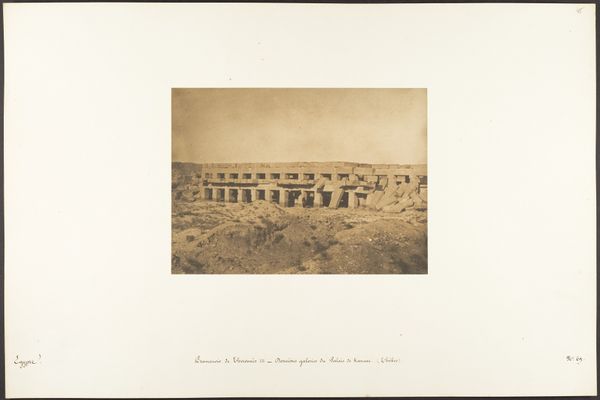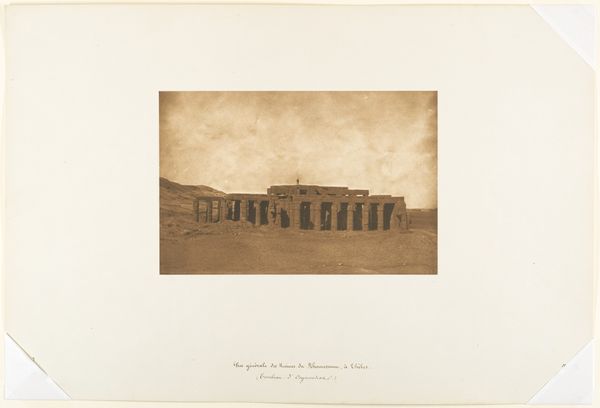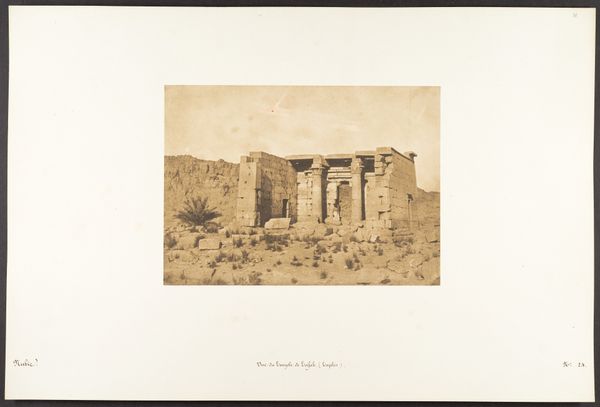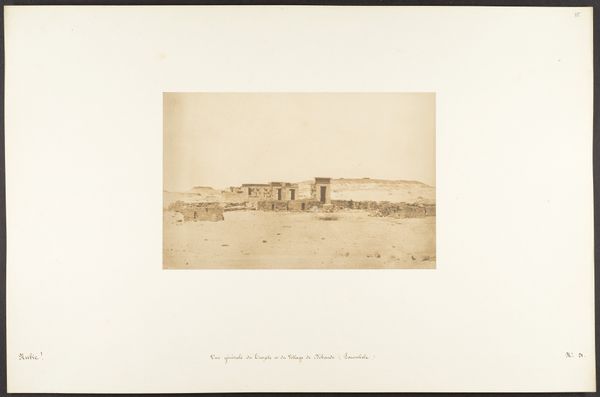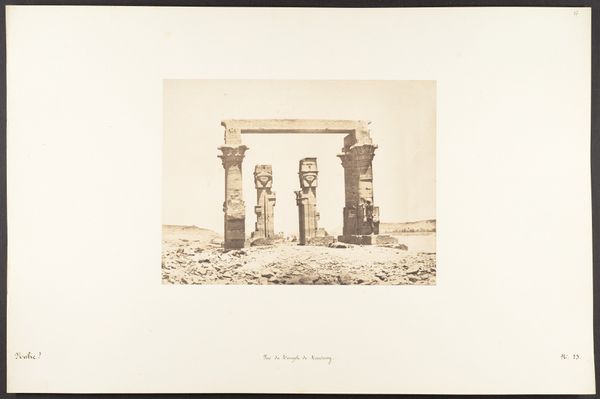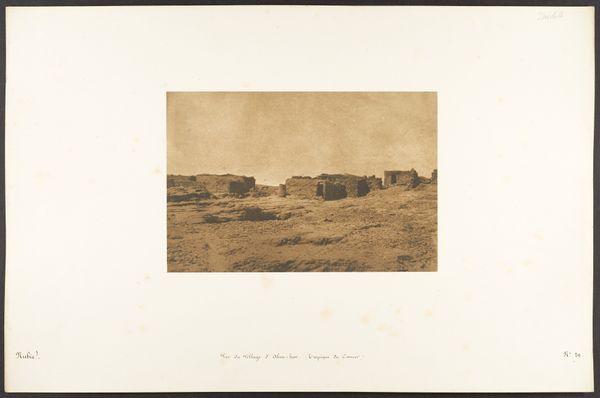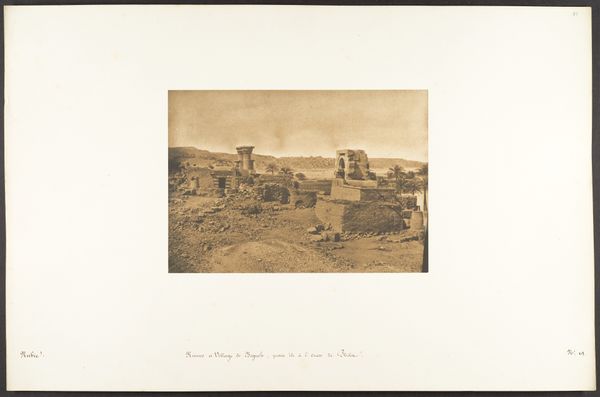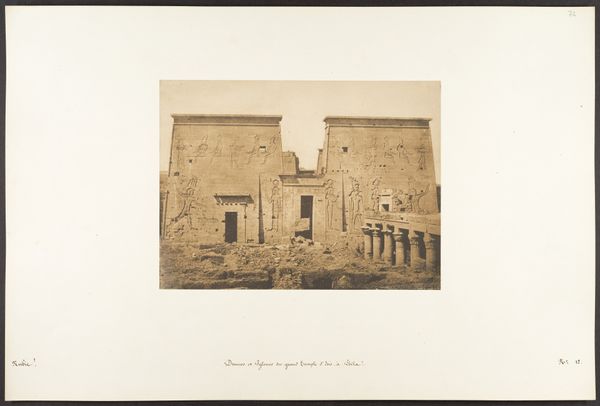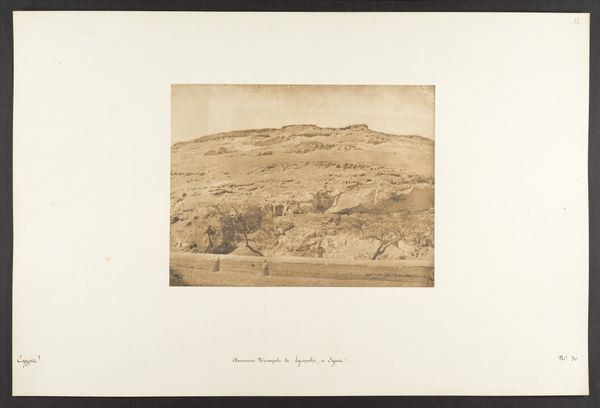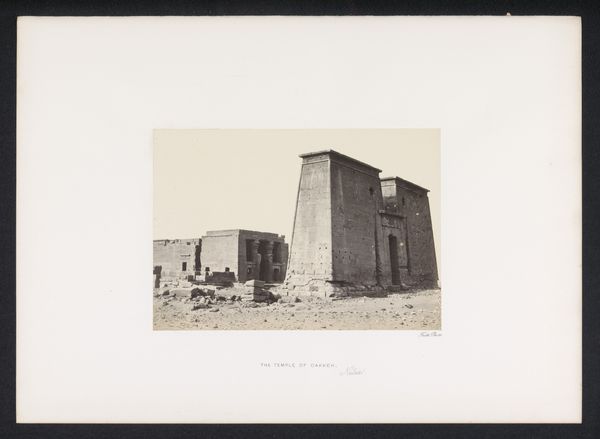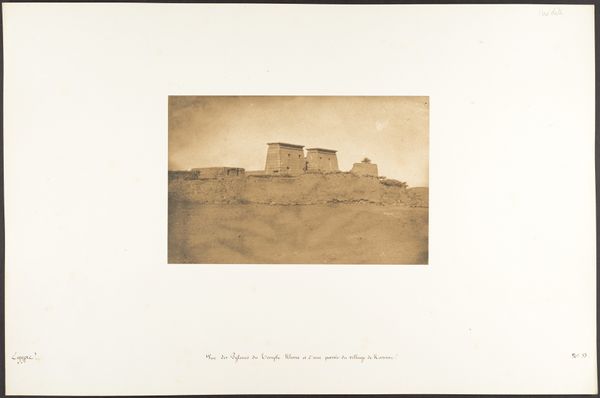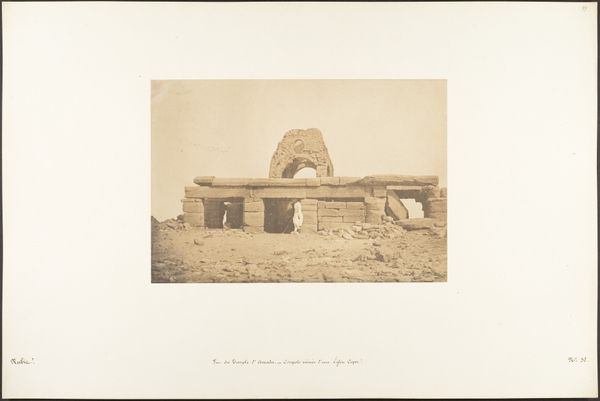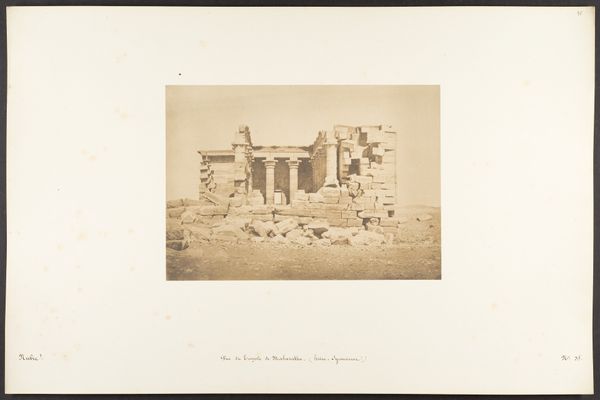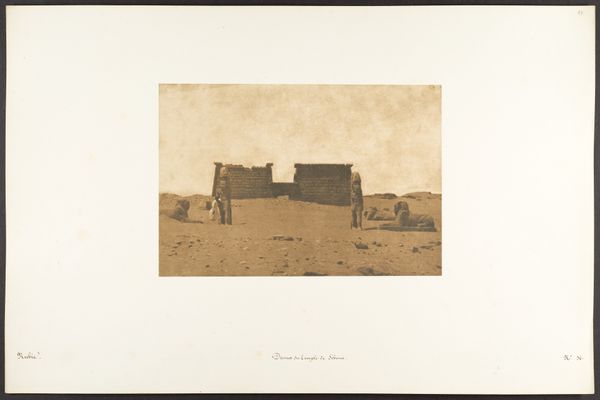
print, photography, albumen-print, architecture
# print
#
landscape
#
ancient-egyptian-art
#
photography
#
cityscape
#
albumen-print
#
architecture
Dimensions: Image: 5 11/16 × 8 11/16 in. (14.5 × 22 cm) Mount: 12 5/16 × 18 11/16 in. (31.2 × 47.5 cm)
Copyright: Public Domain
Editor: Here we have Maxime Du Camp's albumen print, "Palais de Gournah (Ménephtéun) à Thèbes," dating from 1849 to 1850. The sepia tones give it such an ancient feel. The monument looms so large in the frame. What do you see in this piece, beyond just a historical record? Curator: This photograph speaks volumes about power, representation, and the colonial gaze. Du Camp, traveling with Flaubert, was participating in a visual project that served to further solidify European narratives about the 'Orient'. Consider how the photograph presents a romantic vision of a fallen empire, conveniently erasing contemporary Egyptian presence. Editor: That’s a really interesting point, because it feels like it’s portraying something timeless. It's not static at all if you interpret as part of colonialism! Does that influence how we should read the architecture itself? Curator: Absolutely. The architecture, while undeniably impressive, becomes a symbol of a lost glory, subjugated to the Western perspective. The stark composition and the angle chosen – these are not neutral decisions. They reinforce a power dynamic, framing Egypt's past for European consumption and reinforcing existing hierarchies. Do you see any potential in the landscape? Editor: I was immediately drawn to how the photograph minimizes the scale of the actual surroundings to highlight the architectural monument. In a way, that feels like it might obscure local claims and communities tied to the space? Curator: Precisely! It subtly dismisses the living culture surrounding the site, emphasizing the aesthetic value of ruins divorced from their socio-political context. This reinforces a narrative of Egypt as a land of ancient wonders ripe for Western exploration and, by extension, domination. Editor: So, the photograph isn't just capturing an image, but participating in a broader power dynamic. Thanks so much! It’s incredible how a single photograph can be interpreted with such social depth! Curator: It reveals how visual media are active participants in constructing and perpetuating ideology. It makes you want to question everything you see!
Comments
No comments
Be the first to comment and join the conversation on the ultimate creative platform.
